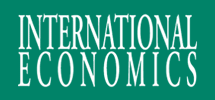| The policy response to the current European crisis has largely focused on its financial symptoms rather than on its deep economic and political causes. The aim of this paper is to contribute to the debate about the current architecture of the European Economic and Monetary Union. The crisis has cracked the intellectual consensus and the political compromise that underpins the architecture of the monetary union enshrined in the Maastricht Treaty. The inter-governmental insurance mechanism that has emerged in response to the crisis could offer a path to buttress the existing architecture, but it is economically limited and politically unsustainable. Indeed, the mutualisation of economic risks that has started tacitly through various mechanisms (European Stability Mechanism, interventions by the European Central Bank) cannot succeed without a more profound rebuilding of the monetary union that involves a move towards pooling of resources and a form of fiscal federalism. |
Abstract
|
